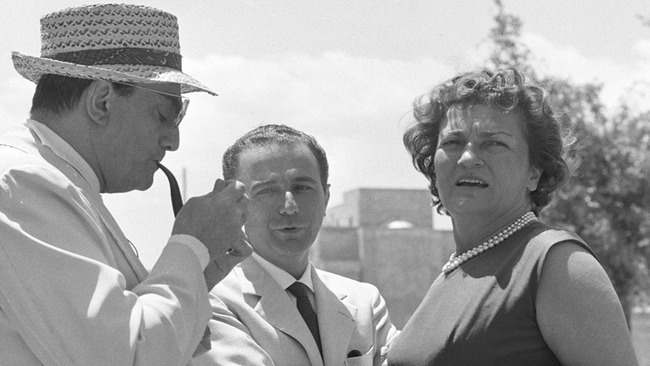Remembering Suso Cecchi D’Amico

The great, beloved screenwriter Suso Cecchi D’Amico died this past weekend at the age of ninety-six. A longtime collaborator of Luchino Visconti’s (they ’ re pictured together above), including on the epic The Leopard (1963), Cecchi D’Amico worked with just about every other luminary of postwar Italian cinema as well: Michelangelo Antonioni (Le amiche, 1955), Mario Monicelli (Big Deal on Madonna Street, 1958), Francesco Rosi (Salvatore Giuliani, 1961), Vittorio De Sica (Bicycle Thieves, 1948). She appeared on several Criterion releases, often interviewed by writer and critic Antonio Monda, who offers this remembrance.
I had the great privilege of interviewing Suso for a few films that she wrote. I was immediately struck by her approach, which was at the same time extremely proud and sincerely humble. Talking about The Leopard, she repeatedly gave credit to the other three screenwriters, although it was absolutely clear that she was the key figure of the operation and the person who created that cinematic masterpiece together with Luchino Visconti—probably one of the greatest examples of film adaptation, wherein the betrayal of the novel’s structure becomes a way of respecting and exalting the essence of Lampedusa’s work. Always direct, sharp, and outspoken, both when talking about politics and art, Suso was the grande dame of Italian cinema, and the closest and most important collaborator of some of the greatest directors of the Italian golden age: Antonioni, De Sica, Visconti, Rosi, Monicelli, and many others. She came from a family of the cultural aristocracy. Her profound culture was always apparent in her films, but her deep knowledge was even more evident both in public and private conversation, with her humble side making her always eager to know and learn. For years, every Sunday evening, she hosted a dinner with her daughters, Caterina and Silvia, at which the crème de la crème of international cinema—including Martin Scorsese, when visiting Rome—would participate. Conversations at her place were not a matter of having a “salon,” but of sharing ideas—often leading to the creation of the plot of a great film or great art.








